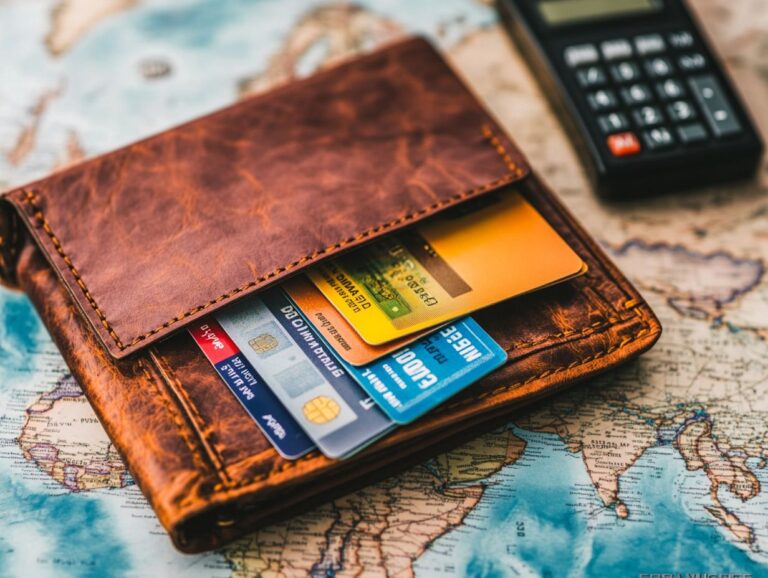Unlock the Value of Rare Coins: A Beginner’s Guide to Appraisals
Collecting rare coins, including antique coins and bullion coins, can be an interesting and rewarding hobby, offering both historical knowledge and potential financial benefits.
This article examines what affects the value of these coins, such as their rarity, coin grading, and market demand.
Understand the details of the coin appraisal process, including the factors influencing appraisal values, like coin authentication and market trends.
Whether you’re new to coin collecting or want to expand your knowledge, these tips, including a beginner’s guide and investment strategies, will help you explore the world of rare coins confidently.
The Value of Rare Coins
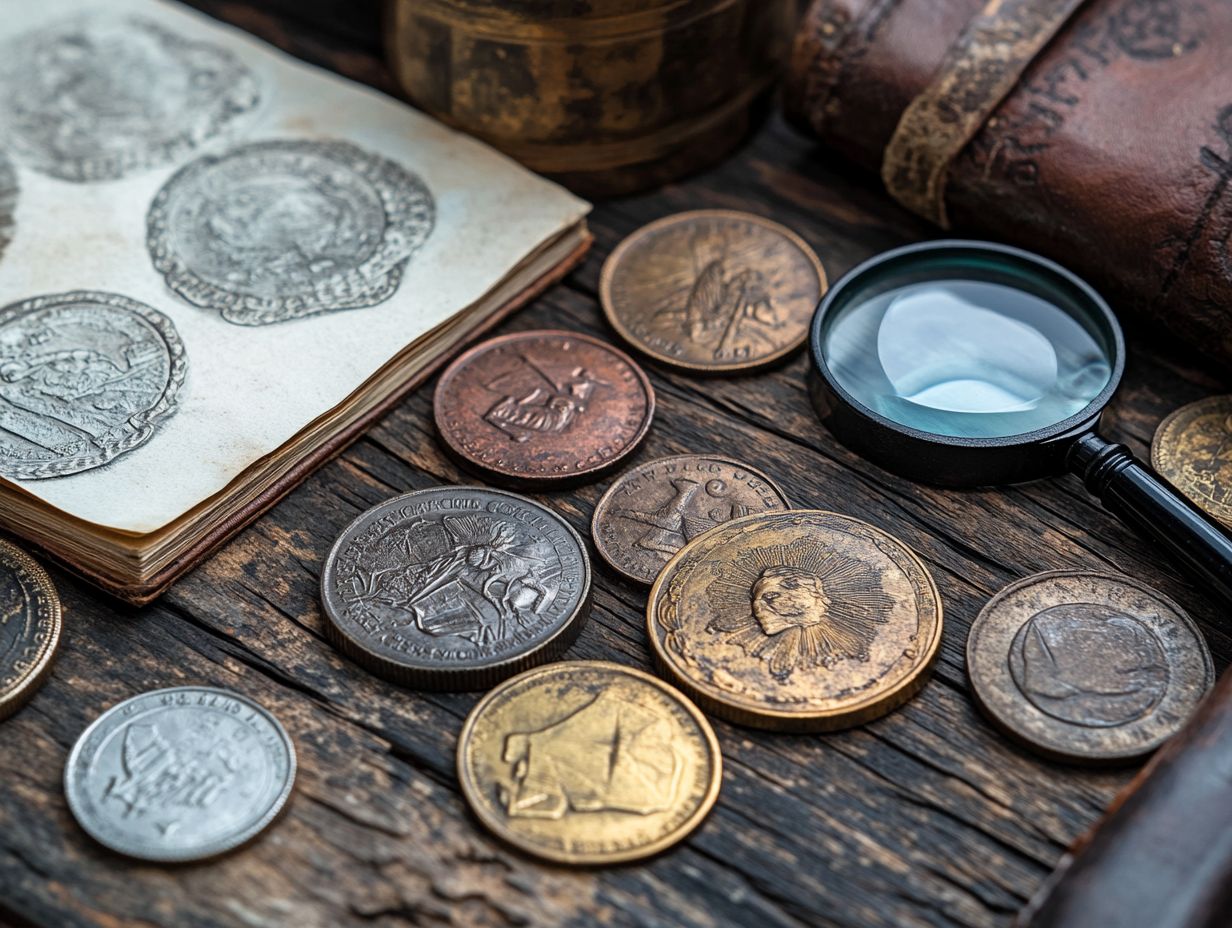
The value of rare coins depends on factors such as market demand, historical significance, coin attributes, and the coins’ condition, making numismatics interesting for both collectors and investors.
Understanding these elements can help you make informed decisions when buying, selling, or collecting these unique assets. Investors often seek rare coins for their potential to increase in value over time, especially during economic changes.
A well-researched strategy can lead to successful outcomes in this intriguing field of collectibles.
Factors that Determine the Worth of Rare Coins
Several key factors determine the value of rare coins, including coin grading, rarity scale, provenance, and mint marks. Understanding these elements is crucial for collectors and investors, as small differences in coin condition can significantly impact market value.
Numismatists use grading scales, like the Sheldon scale, to classify coins based on their condition, from uncirculated to heavily circulated. These differences can lead to major price variations; for example, an uncirculated coin might be worth thousands more than a similar, lower-grade coin.
The rarity of a coin, often influenced by its mintage and survival rate, adds complexity to its value. Coins with fewer surviving examples, particularly those with interesting histories or ties to significant events, often have higher prices due to their appeal and investment potential.
Unique mint marks can indicate limited editions or specific origins, increasing demand among collectors and boosting potential returns.
Benefits of Collecting Rare Coins
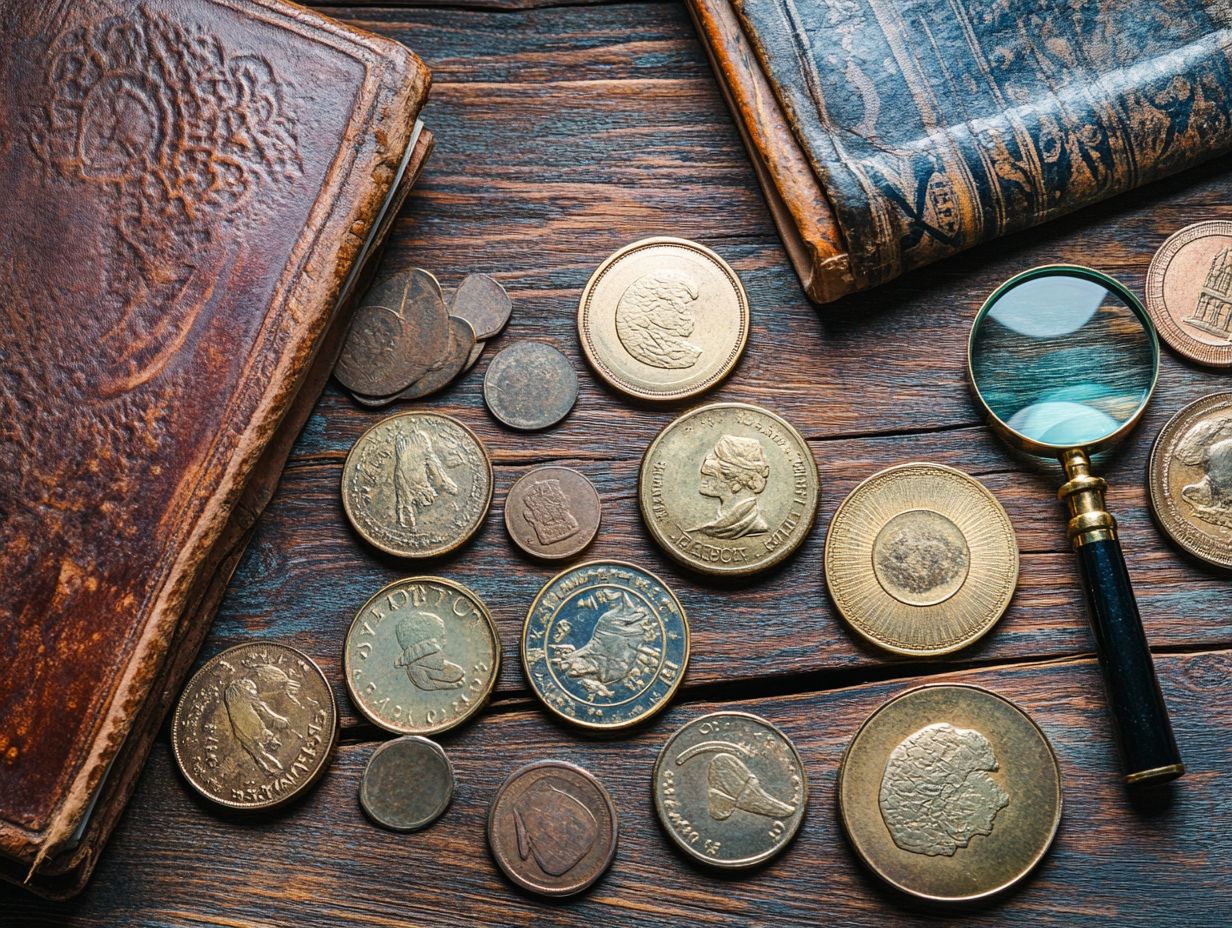
Collecting rare coins offers benefits beyond the enjoyment of a hobby, providing financial advice and investment strategies for building wealth. As these coins often gain value over time, they can protect against inflation and economic downturns, making them a useful addition to an investment portfolio.
Involved collectors gain access to educational resources, numismatic literature, and helpful tips that boost their knowledge and expertise in coin collecting.
The historical importance of coins can spark an interest in history, motivating collectors to learn about the cultures and events that influenced these items. This not only transforms a financial investment into an educational journey but also enriches appreciation for the past.
Interacting with other collectors at shows or clubs helps build friendships and support networks. These connections improve the collecting experience and offer new strategies for understanding the market, showing that coin collecting is as much about community as it is about profit.
Understanding Coin Appraisals
Understanding coin appraisals is important for collectors and investors, as it reveals the true market value and fiscal worth of their coins through a structured appraisal process.
Appraisals help determine market value and are essential for insurance purposes, ensuring proper protection for valuable collections.
Methods for valuation include expert evaluations by certified appraisers and market research based on recent auction results, all designed to give a complete understanding of a coin’s fair market value and numismatic value.
The Appraisal Process
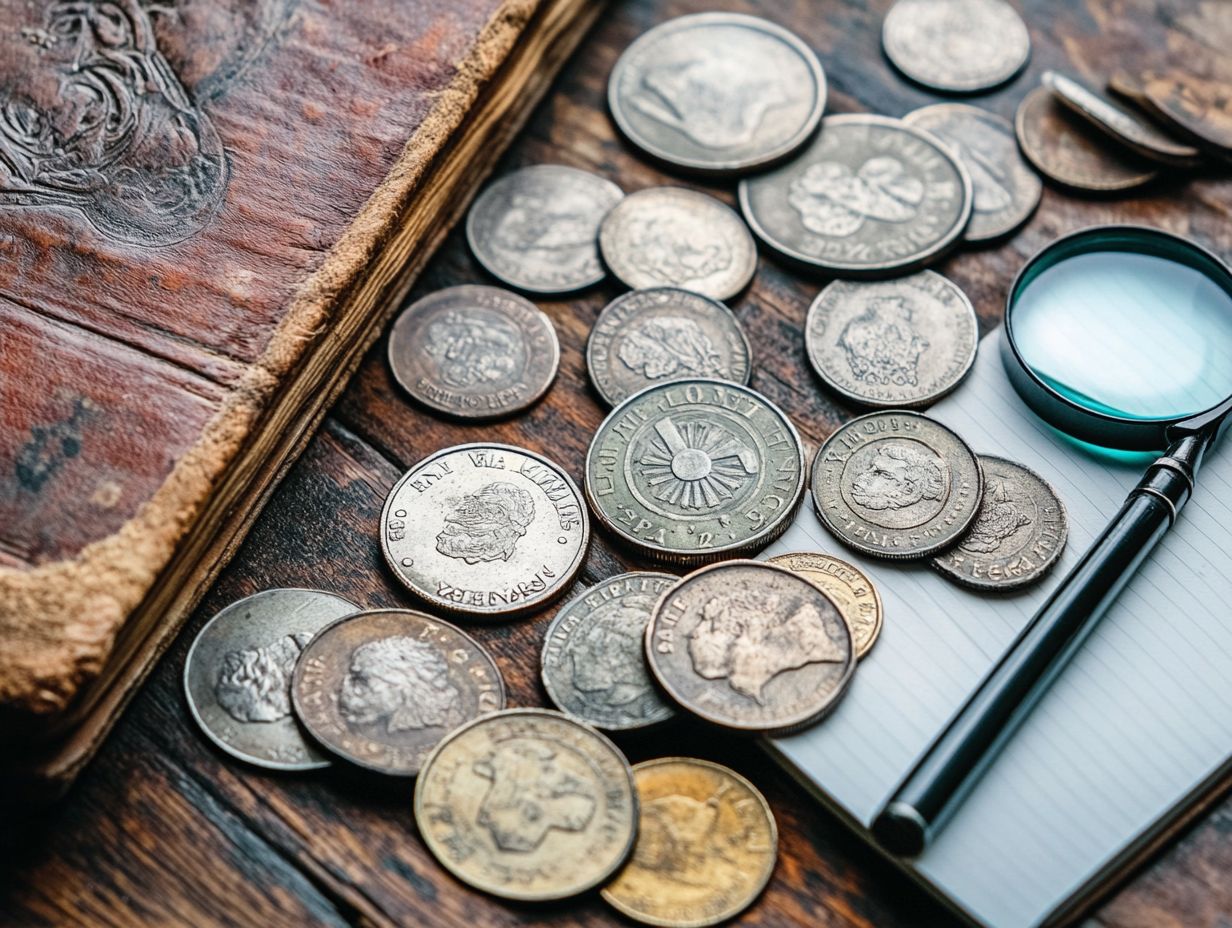
The appraisal process involves assessing appraisers’ qualifications, setting fees, and certifying coins for authenticity. A professional evaluation starts by examining the coin’s market status, rarity, and historical importance to fully understand its value.
For coin collectors, collaborating with certified experts is crucial for accurate appraisals.
Understanding market changes is important, as they can greatly affect coin values. Appraisers must stay updated on trends, including demand and supply, recent sales, and economic trends, to offer the best insights.
The appraiser’s qualifications are vital; experienced numismatists are better at spotting details that determine a coin’s authenticity and value.
Certification from recognized grading services boosts the appraisal’s credibility and assures collectors of their holdings’ legitimacy, significantly impacting the appraisal process.
Factors that Affect Appraisal Values
Several key factors affect coin appraisal values, including the coin’s condition, current market trends, economic factors, and rarity. Understanding these elements is crucial for collectors seeking accurate valuations and market insights, as changes in economic conditions can influence demand and supply.
Market trends can dictate how much collectors are willing to pay at any given time; during a bull market, prices may rise as demand exceeds supply, while a bear market can lead to significant drops in value. Economic conditions, such as inflation rates and interest levels, also impact prices. When inflation rises, collectors may turn to tangible assets like coins as a hedge, driving up prices.
The rarity index assesses how often a specific coin is available and directly affects its desirability. For example, a rare coin that appears less frequently may command a higher value than a more common one. Understanding these factors can help collectors navigate the complex market of rare coins effectively.
Tips for Beginners in Coin Collecting and Appraisals
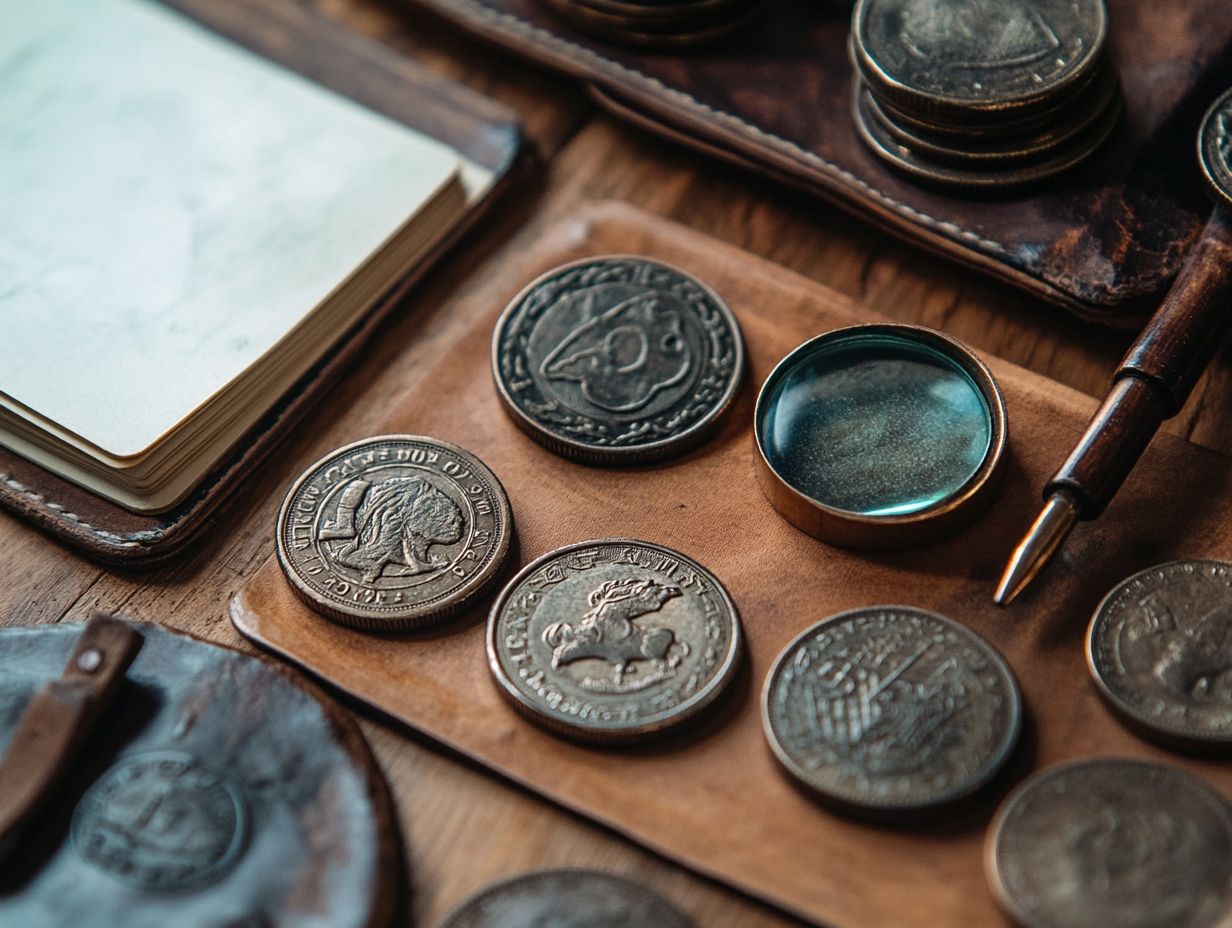
For beginners in coin collecting and appraisals, learning key tips can greatly improve the experience and help avoid common mistakes.
Connecting with collector communities and using online resources offer useful insights into identifying rare coins and handling the appraisal process.
Also, working with a professional appraiser ensures your collection is accurately valued, leading to a more rewarding investment strategy.
Researching and Identifying Rare Coins
Researching and identifying rare coins is a key skill for collectors, as understanding the market and different coin types can lead to successful finds. Using numismatic publications and resources helps you stay updated on trends and understand collectible coins. A detailed buying guide can help beginners find reliable dealers and explore the world of rare coins.
To boost their research, collectors should visit local coin shows and join online numismatic forums. These platforms offer opportunities to discuss discoveries, ask questions, and share experiences, enhancing their knowledge of rare coins.
Subscribing to industry newsletters and using databases from trusted sources keeps you informed about market prices, comparative analysis, and authentication methods.
Developing a solid purchase strategy, like setting a budget and identifying coins based on their historical importance, coin rarity, or market demand, can lead to more successful investments in this intriguing hobby.
Working with a Professional Appraiser
Working with a professional appraiser is crucial for accurately evaluating a coin collection. Expert appraisals follow established standards and address important insurance needs.
Connecting with appraiser networks gives you access to experienced professionals who use valuation techniques specific to your needs. A trusted appraiser offers valuable insights and helps you navigate the complexities of the coin market.
Professional appraisers provide accurate valuations and can enhance the overall value of collections by identifying rare or historically significant pieces. When looking for qualified appraisers, seek certifications from recognized organizations, as these credentials demonstrate their expertise and commitment to ethical practices.
Engaging with expert services helps you understand current market trends and develop better negotiation strategies for potential sales. Ultimately, investing in appraisals enables collectors to make informed decisions, protect their investments, and potentially increase the value of their coin collections over time.



